Selling the latest modern building facades on the UK market
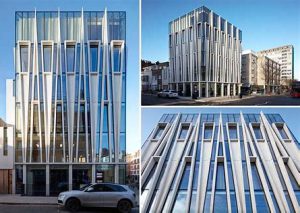
Selling the latest modern building facades on the UK market ,In the dynamic world of architecture, building facades are not merely functional components; they are statements of innovation, sustainability, and aesthetic appeal. As cities evolve and architectural trends shift, the demand for modern building facades in the UK market has reached unprecedented levels. From sleek glass exteriors to eco-friendly designs, developers are constantly seeking cutting-edge solutions to enhance the urban landscape. In this article, we delve into the trends and strategies driving the sale of the latest modern building facades in the UK.
Embracing Sustainability
One of the most prominent trends in modern architecture is the emphasis on sustainability. With growing concerns about climate change and environmental degradation, developers are increasingly turning to eco-friendly building materials and practices. In the UK, there is a strong push towards green building certifications such as BREEAM (Building Research Establishment Environmental Assessment Method) and LEED (Leadership in Energy and Environmental Design).
For manufacturers and suppliers of building facades, this presents a significant opportunity to offer sustainable solutions. Materials like recycled glass, timber, and composite panels are gaining traction for their low environmental impact and energy-efficient properties. Additionally, innovations in facade design, such as incorporating solar panels and green walls, are becoming increasingly popular as developers strive to achieve net-zero carbon emissions.
Innovative Technologies
Advancements in technology have revolutionized the way building facades are designed, manufactured, and installed. From parametric modeling to digital fabrication techniques, architects now have access to a wide array of tools to create intricate and visually stunning facades. For manufacturers, investing in state-of-the-art machinery and software is essential to meet the demands of modern architectural projects.
One notable technology making waves in the UK market is Building Integrated Photovoltaics (BIPV), which seamlessly integrates solar panels into the building envelope. Not only do these solar facades generate renewable energy, but they also contribute to the overall aesthetics of the building. As sustainability continues to drive design decisions, BIPV solutions are expected to become increasingly prevalent in the UK skyline.
Customization and Personalization
In an era where uniqueness and individuality are highly valued, customization has become a key selling point for modern building facades. Architects and developers are seeking ways to differentiate their projects through bespoke designs that reflect their vision and brand identity. Whether it’s incorporating innovative lighting systems, dynamic façade elements, or intricate patterns, customization allows buildings to stand out in the urban landscape.
For manufacturers, offering customizable solutions requires a high level of flexibility and collaboration. This may involve working closely with architects and designers to translate their concepts into feasible and cost-effective facade solutions. Additionally, digital tools such as parametric design software enable manufacturers to create complex geometries and patterns with precision and efficiency, opening up new possibilities for customization.
Collaboration and Partnerships
In the competitive market of modern building facades, collaboration is key to success. Architects, developers, manufacturers, and suppliers must work together seamlessly to deliver projects that meet the highest standards of design, performance, and sustainability. By fostering strong partnerships across the value chain, companies can leverage each other’s expertise and resources to tackle complex challenges and deliver innovative solutions.
Moreover, collaboration enables stakeholders to stay ahead of the curve by sharing knowledge and insights into emerging trends and technologies. This collective approach not only drives innovation but also enhances the overall quality and value proposition of modern building facades in the UK market.
Market Penetration and Target Audience
To successfully sell the latest modern building facades in the UK market, it’s crucial to understand the target audience and effectively penetrate the market. Architects, developers, and construction companies are the primary stakeholders involved in building projects and are therefore key decision-makers when it comes to selecting facade solutions. Building strong relationships with these professionals through targeted marketing, networking events, and participation in industry conferences can help manufacturers and suppliers establish a foothold in the market.
Moreover, with the increasing focus on sustainability, government bodies and regulatory agencies are playing a significant role in shaping building codes and standards. Engaging with policymakers and advocating for sustainable building practices can not only help drive demand for eco-friendly facade solutions but also position companies as leaders in the field.
Quality Assurance and Compliance
In the construction industry, quality assurance and compliance are paramount to ensure the safety and durability of building facades. Manufacturers and suppliers must adhere to stringent quality standards and certifications to instill confidence in their products among architects, developers, and regulatory authorities. This includes conducting rigorous testing, adhering to building codes and regulations, and obtaining relevant certifications such as ISO 9001 and CE marking.
Furthermore, staying abreast of regulatory changes and industry standards is essential to remain competitive in the market. By proactively addressing compliance issues and offering transparent documentation, companies can build trust with their clients and differentiate themselves from competitors.
After-Sales Support and Maintenance
The relationship between manufacturers and clients doesn’t end once the building facade is installed. Providing comprehensive after-sales support and maintenance services is crucial to ensure the long-term performance and durability of facade systems. This includes offering warranties, conducting regular inspections, and providing technical assistance in case of any issues or concerns.
By offering reliable after-sales support, manufacturers can build loyalty and trust with their clients, leading to repeat business and positive referrals. Additionally, investing in research and development to continually improve product performance and longevity can help companies stay ahead of the competition and meet the evolving needs of the market.
Marketing Strategies and Brand Positioning
Effective marketing strategies play a pivotal role in capturing the attention of potential clients and showcasing the value proposition of modern building facades. Leveraging various channels such as digital marketing, trade shows, industry publications, and social media platforms can help manufacturers and suppliers reach a wider audience and generate leads. Content marketing, including case studies, whitepapers, and blog posts highlighting successful projects and innovative solutions, can also establish credibility and demonstrate expertise in the field.
Brand positioning is another critical aspect of selling modern building facades in the UK market. Companies need to differentiate themselves from competitors by articulating their unique selling points and value proposition. Whether it’s a focus on sustainability, cutting-edge technology, or superior craftsmanship, companies must clearly communicate what sets them apart and why clients should choose their products over others in the market.
Adapting to Market Trends and Customer Feedback
The architecture and construction industries are constantly evolving, driven by changing trends, technological advancements, and shifting consumer preferences. To remain competitive, manufacturers and suppliers must stay attuned to market trends and adapt their product offerings accordingly. This may involve investing in research and development to develop new materials, techniques, and designs that align with emerging trends such as biophilic design, smart buildings, and circular economy principles.
Customer feedback is another invaluable source of insights for companies looking to refine their products and services. Actively soliciting feedback from clients, architects, and contractors can provide valuable information about pain points, preferences, and areas for improvement. By incorporating customer feedback into product development and refining their offerings based on market demand, companies can stay ahead of the curve and maintain a competitive edge in the UK market.
International Expansion and Global Opportunities
While the UK market presents significant opportunities for selling modern building facades, manufacturers and suppliers should also explore international expansion to diversify their revenue streams and tap into global opportunities. Emerging markets in Asia, the Middle East, and Latin America offer immense potential for growth, driven by rapid urbanization, infrastructure development, and increasing demand for sustainable building solutions.
However, expanding into international markets requires careful consideration of local regulations, cultural nuances, and competitive dynamics. Companies may need to adapt their products, marketing strategies, and business models to suit the specific needs and preferences of each market. Building strategic partnerships with local distributors, contractors, and developers can also facilitate market entry and help navigate the complexities of doing business abroad.
Ensuring Regulatory Compliance and Ethical Practices
In the realm of modern building facades, ensuring regulatory compliance and ethical practices are fundamental pillars of success. The UK construction industry is subject to a plethora of regulations, codes, and standards aimed at safeguarding public safety, promoting sustainability, and upholding ethical business practices. Manufacturers and suppliers must adhere to these regulations and standards to maintain credibility and trust within the market.
Moreover, ethical considerations such as fair labor practices, environmental stewardship, and social responsibility are increasingly important factors for both clients and consumers. Companies that prioritize ethical practices and demonstrate a commitment to corporate social responsibility (CSR) not only contribute positively to society but also enhance their brand reputation and attract socially conscious clients.
By implementing robust quality control measures, conducting regular audits, and embracing transparency in their operations, manufacturers and suppliers can ensure compliance with regulations and ethical standards while building a reputation as trustworthy and responsible industry leaders.
Investment in Research and Development
Innovation is the lifeblood of the modern building facades industry, driving advancements in materials, technologies, and design concepts. Investing in research and development (R&D) is essential for companies looking to stay ahead of the curve and deliver cutting-edge solutions that meet the evolving needs of clients and regulatory requirements.
Whether it’s developing new sustainable materials, refining manufacturing processes, or exploring novel design approaches, R&D enables companies to push the boundaries of what’s possible in modern architecture. By fostering a culture of innovation and collaboration, companies can cultivate a pipeline of groundbreaking ideas and solutions that set them apart in the market.
Furthermore, government grants, industry partnerships, and collaborative research initiatives can provide valuable resources and support for companies investing in R&D. By leveraging these opportunities, manufacturers and suppliers can accelerate innovation, drive product development, and maintain a competitive edge in the UK market and beyond.
Conclusion
In conclusion, selling the latest modern building facades on the UK market requires a holistic approach that encompasses sustainability, innovation, regulatory compliance, ethical practices, and investment in research and development. By embracing these principles and leveraging them as strategic differentiators, manufacturers and suppliers can position themselves for success in the dynamic and competitive landscape of modern architecture.
With a focus on quality, innovation, and responsible business practices, companies can not only meet the demands of clients and regulatory authorities but also contribute to the creation of sustainable, aesthetically pleasing, and functional buildings that define the urban landscape of the future. By staying attuned to market trends, embracing emerging technologies, and fostering collaboration across the industry, manufacturers and suppliers can drive demand for their products and play a pivotal role in shaping the future of modern architecture in the UK and beyond , Selling the latest modern building facades on the UK market.

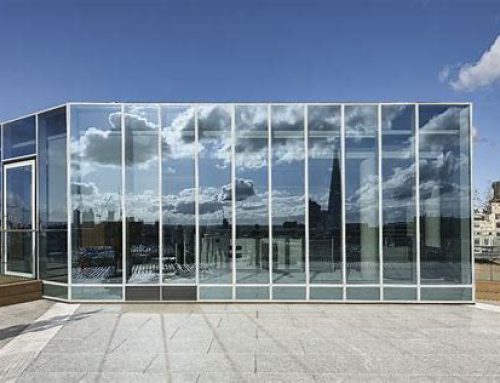
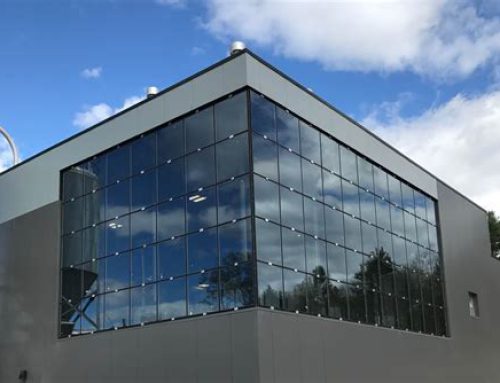
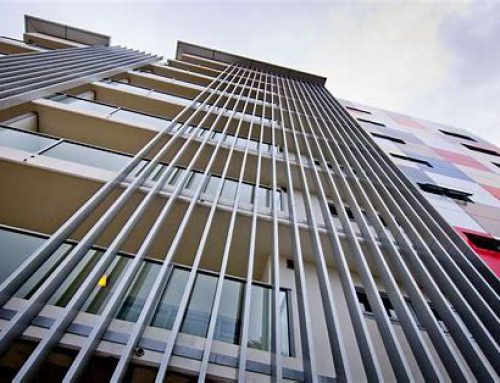
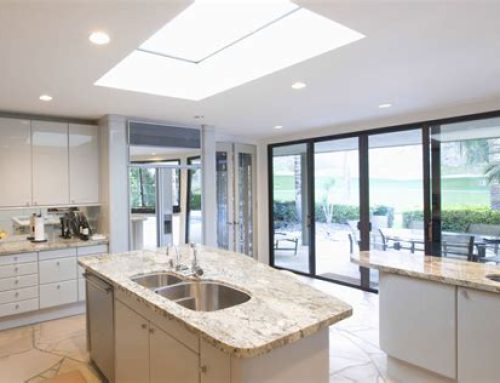
Leave A Comment